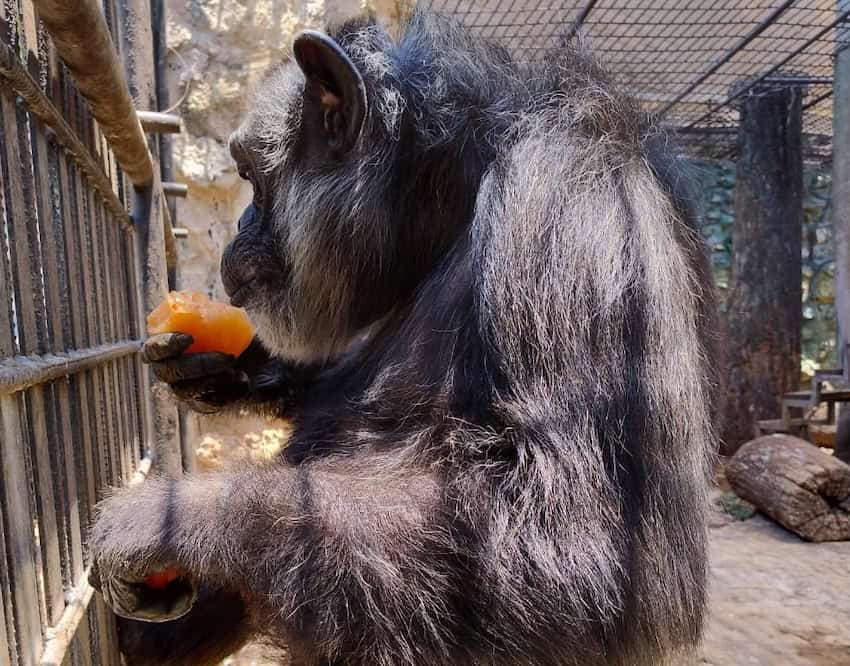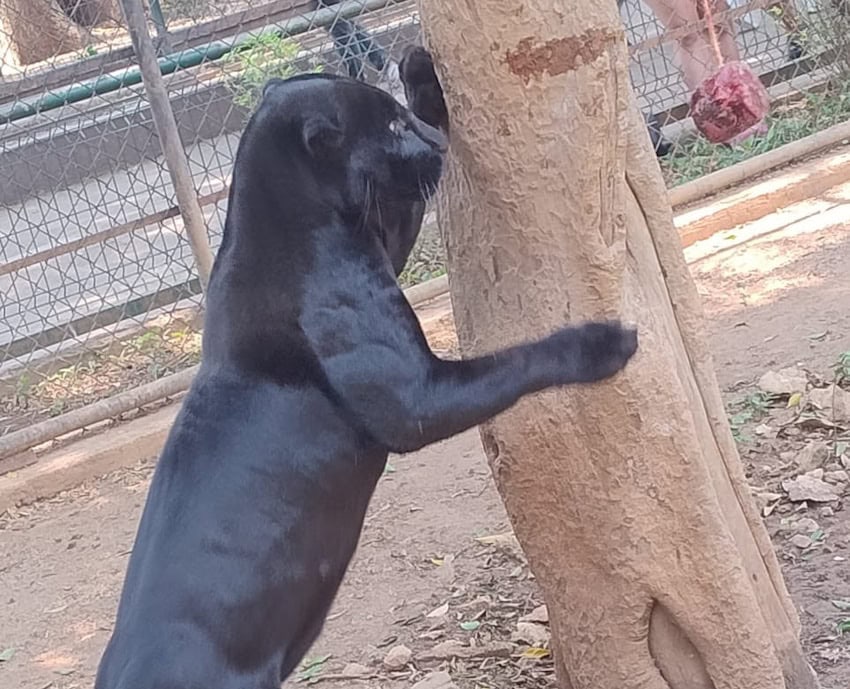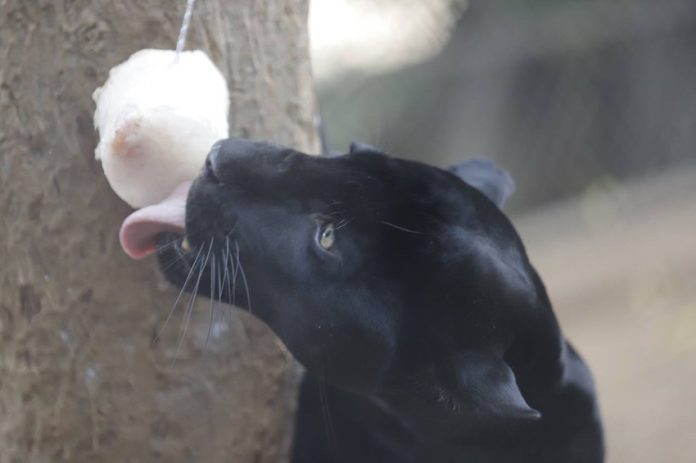Ever had a rabbit popsicle? How about a chicken popsicle?
Well, you probably wouldn’t have unless you live at a certain Mérida zoo.

Biologists at the El Centenario Zoo in Mérida, the capital of the state of Yucatán, decided that popsicles (paletas) would help the animals endure the sweltering heat that is typical of the region. It is not uncommon for the temperatures to push the mercury up to 40˚ C (104˚ F) or higher.
It’s not the first time that a zoo has decided to provide chilled food to the animals under its care, reports the newspaper Infobae. When prepared properly, animals receive the proper nourishment while also properly hydrating and cooling.
Biologist Walter Rosado, in charge of preparing the popsicles, carefully observes the dietary needs of each species. Infobae reported that 60% of the 609 animals living in the zoo, including 85 species, are the beneficiaries of the “Paletón” (popsicle) program.
“The big cats get meat popsicles made of beef, chicken and rabbit, and the primates get fruits and vegetables,” he said. The bird population gets fruits, seeds and insects in their popsicles.

In addition to the restorative qualities of the iced treats, Rosado said the ingredients and preparation also aim to heighten the animals’ experience.
“Beyond the goal of hydration and refreshment, we hope [the popsicles] provide them with sensations they wouldn’t normally experience,” he said. “We want them to feel the texture, the consistency, the flavors.”
So far, the plan appears to be a big success. The animals are benefiting from the cooling snacks, while visitors are entertained by the spectacle.
“We’ve observed some animals react happily, they run around more, they move more,” Rosado said. “Sometimes they even fight over the popsicles.”
The big cats are popular with visitors as some of the leopards, jaguars, tigers and lions will play with their frozen blocks as if they are prey.
El Centenario is not alone among zoos relying on iced treats to address the searing heat. Animaya Zoo in western Mérida and municipal zoos in Tizimin and Valladolid in central Yucatán are also treating their animals to iced treats.
With reports from El Financiero and Infobae
